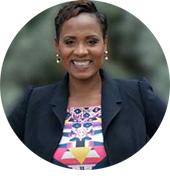
Earlier this week I started asking myself a series of questions, all triggered by this historic world pandemic, humanity is currently experiencing.
Amongst all the questions I asked, the one that stood out was, “Who am I?”
Truth be told, I’ve asked myself this question many times before, as I am sure many of you have done. However, this time, my question was as a result of the vast and sudden changes we all have experienced and continue to experience in every aspect of our lives.
From a very tender age, the majority of us were told who we are or who we were going to be, based on the roles and values handed down by the influential voices in our lives at the time. And over time, we accepted these roles and values as who we were.
In most societies, a person’s sense of self is mainly derived from what we do, what we have, who we associate with and what we believe. These factors become the driving force behind who we think we are and therefore guide our choices and actions.
Outside of these established identities, who then are we?
Considering the world’s current landscape, and its happenings, it can be said that our sense of self or identity is under threat, with a potential identity crisis in the making, as what we do, what we have, who we associate with and what we believe, is rapidly changing and without much notice.
While, admittedly each of us have undergone several identity changes throughout our lives, for the vast majority, such changes would have happened gradually and over a period of time, thereby allowing us to better manage and integrate.
However, as we seek to control the spread of the virus, through social distancing and self-isolation, more and more of who we believed we were in the form of our everyday activities and actions, are being limited and, in some instances, eradicated.
Everyday endeavours which were once an integral and fundamental aspect of who we are, including work, socializing, community, travel, shopping, etc. have all been affected in one way or the other.
With no guarantee of a specific due date of when life as we know it would return to normalcy, and therefore what we considered our sense of self being re-established, how then do we manage with what seems like a growing gaping hole of who we are.
I believe this unprecedented world crisis among several other things, calls us to first critically examine what we currently believe constitutes our sense of self and secondly begin to look at ways of possibly averting the potential identity crisis.
When examined, who we think we are based on what we do, what we have, who we associate with and what we believe, seems to very volatile and impermanent, changing with seasons, circumstances, events and growth.
In this regard, we are ushered to look beyond what is subject to change, and possibly adopt a new paradigm which encourages us to not identify and base our sense of self on the impermanent aspects of life, but rather view them based on the function they provide.
Our jobs, titles, social status, possessions, relationships, belief systems etc. all serve important functions in our lives but do not and cannot define who we are, because of their ever-changing nature.
No, who we are is much more complex than what we have and how much of it we have. And when we are able to recognize and acknowledge this truth, life potentially becomes simpler and easier, because we are no longer attached to what changes but instead, hold and use them loosely, understanding that they are meant to serve us and not define us.
“Blessed are the flexible because they won’t be bent out of shape.” Anonymous
In times of intense change and uncertainty, similar to our current time, flexibility and adaptability is an extremely necessary characteristic we need, as this is what helps us to ride the wave of transformation, as it ebbs and flows.
This is true for the past as it is for our present time. Ideas, beliefs and ways of being, which once constituted our norm, must be revisited and revised, in light of our current needs and requirements. Otherwise, we risk magnifying the crisis both in our inner world and outer world.
The truth is, the more flexible and adaptable we are during such as season, the less intense the effects of the crisis. As we release our hold on what was and open ourselves to what is, we are better able to welcome the possibilities and opportunities that are available to us now.
Throughout the world’s history, we have countless records of epidemics, pandemics and crises occurring. Such incidents and events seem to be naturally occurring aspects of life here on earth. In such times, everyone is always faced with the option of how we will experience the event, whether it will be a catalyst for positive change and transformation, or one retards our growth and expansion. The choice is and is always an individual one.
I believe, we have a unique opportunity available to us, despite what seems like pandemonium. However, this is all based on how we choose to view it and treat with it. Once we remind ourselves that what we do, what we have, who we associate with and what we believe, does not define who we are and that they are simply functions of our experience, as our outer world changes, we will naturally adapt to the next phase in our evolution.




![Simón Bolívar - Liberator of the Americas [Photo credit: Venezuelan Embassy]](https://thevoiceslu.com/wp-content/uploads/2025/12/Simon-Bolivar-feat-2-380x250.jpg)



